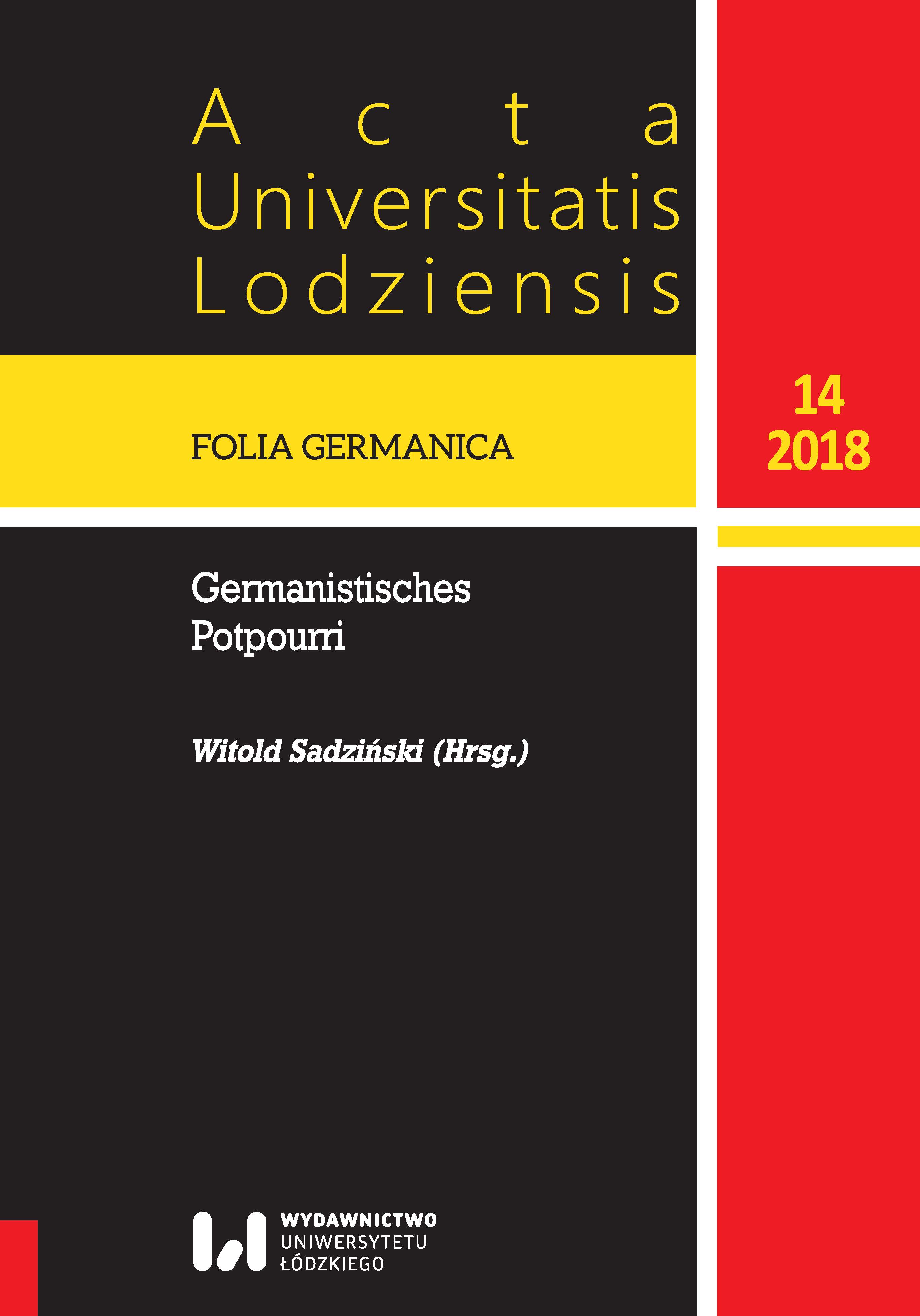Die formale Entwicklung des Verbs tun im Deutschen. Eine korpusbasierte Untersuchung vom Alt- bis zum Frühneuhochdeutschen
Formal development of the verb tun (“do, make”) in the German language a corpus investigation from the old to the modern-new-high-German stage
Author(s): Marta WoźnickaSubject(s): Language studies, Studies of Literature, Philology
Published by: Wydawnictwo Uniwersytetu Łódzkiego
Keywords: verb tun; old-high-German; middle-high-German; early-new-high-German; formal development
Summary/Abstract: The article aims to introduce the formal development of the verb tun (“do, make”) in the German language, based on the corpuses of old (http://titus.uni-frankfurt.de/indexe.htm), middle (https:// www.linguistics.ruhr-uni-bochum.de/rem/) and modern-new-high-German language (https://korpora.zim.uni-duisburg-essen.de/Fnhd/). However, the morphological analysis is primarily based on Józef Darski’s (1987, 2004, 2010) innovative model of linguistic analysis which, due to its synchronic character, has been adopted in diachronic research. The verb forms of tun, prone to modifications owing to multiple processes depending on both the stage of development and the language as a paradigm, reveal its capability of adaptation to the two basic classes of verbs, i.e. strong verbs and/or weak verbs and their subclasses. Additionally, it is possible to observe the processes of homogenization of the verb forms within a given paradigm and among the forms of distinct paradigms, mainly to stabilise them.
Journal: Acta Universitatis Lodziensis. Folia Germanica
- Issue Year: 2018
- Issue No: 14
- Page Range: 21-31
- Page Count: 11
- Language: German

